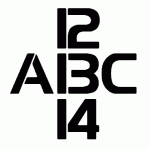Training Trainers
 Training Trainers: Growth and development as Trainer of Cognitive Behavior Management is never ending process. Several factors contribute to this state of affairs:
Training Trainers: Growth and development as Trainer of Cognitive Behavior Management is never ending process. Several factors contribute to this state of affairs:
- CBM is a “cutting edge” technology; meaning that it is still developing and growing
- The theoretical underpinnings are also growing and developing as epitomized by the brain plasticity findings which provide a biological explanation for why cognitive interventions work.
- CBM is counter cultural in that the ‘medical model’ approach is a worldwide failure, but well established. As a result, many people who work in the field will seek to continue the culture of failure. Many clients of the human welfare [educational, clinical, protective and correctional] services are culture as well – they have learned helplessness.
Because of these factors, we suggest that you work backwards from the Instructional Guide for training trainers and start with a sixty-hour training as the beginning level of expertise. This assumes, of course, that you have absorbed a level of expertise yourself, to be able to provide the training. Your expertise should not be limited to what you find in this website, but should include your own expansion of the technology, for it is, after all, cutting edge. Just make sure that any enhancements you make meet the standard of the client as the agent of change and the helper as an enabler in that process.
Related Content
Messages
Messages Charles S. Peirce, founder of the philosophy known as pragmatism, believed that the ‘meaning’ of a message is the behavior it induces.... This, of course is not totally true, the behavior may not reflect the message as intended, but it does reflect the...
Motivation – Attribution & Expectancy
VIII Motivation – Attribution & Expectancy Summary of Attribution Theory [adapted from Kenneth J. Gailbraith] The motivation of achievement and the findings of attribution research lead Bernard Weiner to develop his attribution theory. Psychologists have defined...
Personal Development Factors
VIII Personal Development Factors A. Self-Appraisal: this includes an assessment of self in parts and whole. Usually includes a comparison of self to others and a judgement in regard to worth or value. Such judgements are highly arbitrary and allow for substantial...
Processes
VII Processes 01. Engagement a. Establishing a trust relationship b. Establishing safety c. Assessment of strengths and weaknesses d. Formulating a behavioral conceptualization, and e. Eliciting from the client the formulation of a vision and a plan for change f....
Psychological Theories & Philosophies That Support Cognitive Behavior Management
II Psychological Theories & Philosophies That Support Cognitive Behavior Management A. Cognitive Theory 01. A person creates a meaning for the world from which to predict and control future events a. Referred to as an ‘inner logic’ or the Theory of Meaning b. All...
References – Philosophical & Theoretical Resources
X. REFERENCES A. Philosophical & Theoretical Resources Allen, Fredrick H., The Dilemma of Growth Baar, Bernard J., A Cognitive Theory of Consciousness, 1988 Bradley, Valerie J. & Knoll, James, Shifting Paradigms in Services to People with Developmental...
Specific Intervention Strategies
IX SPECIFIC INTERVENTION STRATEGIES A. Protocols # 01 Depression - Helplessness is the major characteristic of depression. Other symptoms may include: sadness, lack of interest, lack of energy, exertion, withdrawal, hopelessness, appetite change: gain or loss of...
The Power of Messages
The Power of Messages Communication has three [03] major components: a sender, a message and a receiver. Each of these components must be consciously examined, and a strategy determined. Since we start from the assumption that we have no control over other persons, we...
The Rules of Engagement
The Rules of Engagement Engage: From a vulgar Latin noun meaning ‘pledge’. Bind by contract or promise; pledge oneself. Seek first to understand, then to be understood. As we begin to define the principles and values upon which a human services system might operate,...
The Unanswerable Question
The Unanswerable Question When we are asked a question for which we don’t know the answer, most of us will guess. And our guess will be in terms that we understand and accept. If, for example, I ask how high is the Statue of Liberty in America - the guess may be well...
